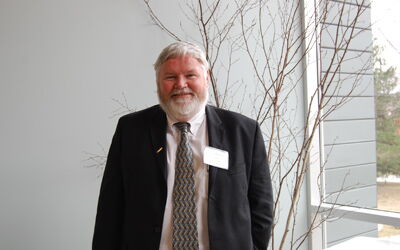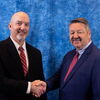Processing Your Payment
Please do not leave this page until complete. This can take a few moments.
- News
-
Editions
-
- Lists
-
Viewpoints
-
Our Events
-
Event Info
- Business Leaders of the Year Reception 2025
- Women's Leadership Forum 2025
- On the Road with Mainebiz in Bethel
- Health Care Forum 2025
- On The Road with Mainebiz in Greenville
- On The Road with Mainebiz in Waterville
- Small Business Forum 2025
- Outstanding Women in Business Reception 2025
- On The Road with Mainebiz in Bath
- 60 Ideas in 60 Minutes Portland 2025
- 40 Under 40 Awards Reception 2025
- On The Road with Mainebiz in Lewiston / Auburn
- 60 Ideas in 60 Minutes Bangor 2025
Award Honorees
- 2025 Business Leaders of the Year
- 2024 Women to Watch Honorees
- 2024 Business Leaders of the Year
- 2023 NextUp: 40 Under 40 Honorees
- 2023 Women to Watch Honorees
- 2023 Business Leaders of the Year
- 2022 NextUp: 40 Under 40 Honorees
- 2022 Women to Watch Honorees
- 2022 Business Leaders of the Year
-
-
Calendar
-
Biz Marketplace
- News
- Editions
- Lists
- Viewpoints
-
Our Events
Event Info
- View all Events
- Business Leaders of the Year Reception 2025
- Women's Leadership Forum 2025
- On the Road with Mainebiz in Bethel
- Health Care Forum 2025
- On The Road with Mainebiz in Greenville
- + More
- On The Road with Mainebiz in Waterville
- Small Business Forum 2025
- Outstanding Women in Business Reception 2025
- On The Road with Mainebiz in Bath
- 60 Ideas in 60 Minutes Portland 2025
- 40 Under 40 Awards Reception 2025
- On The Road with Mainebiz in Lewiston / Auburn
- 60 Ideas in 60 Minutes Bangor 2025
- - Less
Award Honorees
- 2025 Business Leaders of the Year
- 2024 Women to Watch Honorees
- 2024 Business Leaders of the Year
- 2023 NextUp: 40 Under 40 Honorees
- 2023 Women to Watch Honorees
- 2023 Business Leaders of the Year
- + More
- 2022 NextUp: 40 Under 40 Honorees
- 2022 Women to Watch Honorees
- 2022 Business Leaders of the Year
- Nomination Forms
- Calendar
- Biz Marketplace
Efforts are under way to put a global spin on future papermakers
 photo/Randy Billings
Jack Healy, executive director of the Maine Pulp and Paper Foundation, is developing exchange programs to expose Maine students to the global pulp and paper market
photo/Randy Billings
Jack Healy, executive director of the Maine Pulp and Paper Foundation, is developing exchange programs to expose Maine students to the global pulp and paper market
Contrary to common belief, Maine's pulp and paper industry is healthy, according to Jack Healy, executive director of the Maine Pulp and Paper Foundation, which recently hosted its 62nd annual Paper Days event at the University of Maine in Orono.
Healy, who has 33 years of experience in the industry, says Maine continues to be the second-leading pulp and paper producer in the United States. And while the number of industry jobs has dropped, there's an increasing demand for highly skilled engineers and others to replace retiring baby boomers.
But the industry is changing: Some local mills are owned by foreign companies; and mills in China and India import U.S. pulp to make paper, while exporting chemicals and equipment here. In recognition of the growing global trend, the Accreditation Board of Engineers and Technology now requires global awareness to be part of college curriculums.
The foundation — the oldest and largest of its kind in the United States with 70 member companies and more than 200 individual members — is looking to create more global experiences for students. With a $1.3 million budget, it awards about $750,000 in full-tuition scholarships to 86 engineering students annually. Since 1950, it has awarded 3,600 scholarships, each requiring students to spend two semesters in a co-op or internship. In 2010 and 2011, all graduates immediately found employment or went to graduate school.
Mainebiz recently talked with Healy about new efforts to prepare students for the growing global marketplace. Below is an edited transcript.
Mainebiz: How does the university meet ABET's new requirement?
Healy: I think it's important that [students] choose [general education classes] wisely to give them that global experience. I know ... chemical engineering professors try to build that global awareness into the curriculum, and they have metrics to ensure they [do it.] I think the university does a good job, but I think there is a gap and an opportunity.
What other efforts are under way to increase global opportunities for students?
We're working with Ray Heuchling, of the Heuchling Group, and Jimmy Lu, with China Paper Online … to encourage an exchange program so their students can come here and our students can go there. We're working with several international companies, such as Metso, to develop an international co-op, where [students] would spend one semester working here in the United States and one semester working overseas, such as in Finland. The third thing we're doing is working with the student chapter of [a national papermaking association] to encourage interest in an international trip each year to a country that focuses on pulp and paper. We would send them some years to China, Chile or some years to the Scandinavian countries. [These] are fledgling [efforts], but we think they're going to happen.
Why should students experience foreign cultures, rather than just learn about them in class?
If you look at our Consider Engineering program [for 102 high school juniors], people learn a lot better by doing … experiments and trying things and seeing things for themselves. We believe that same teaching method will work as students travel to different countries as they do co-ops overseas. Also, as we look at the exchange program and having some of the Chinese students here, we're also bringing that culture to the university.










Comments